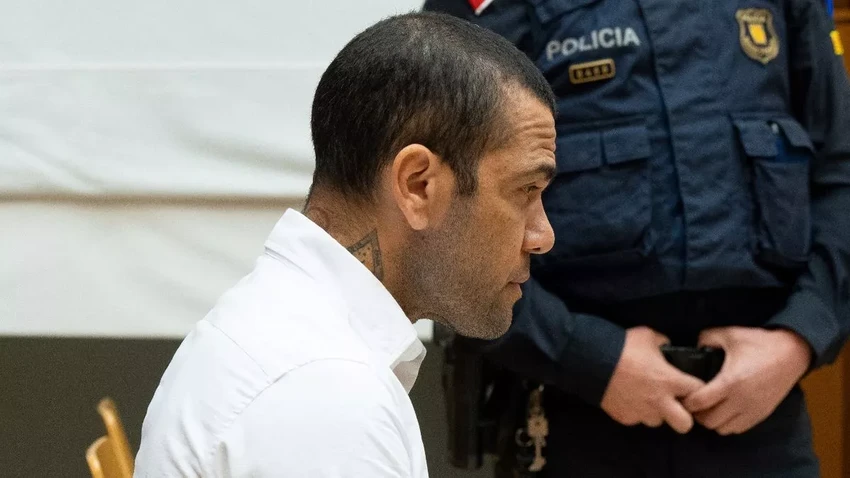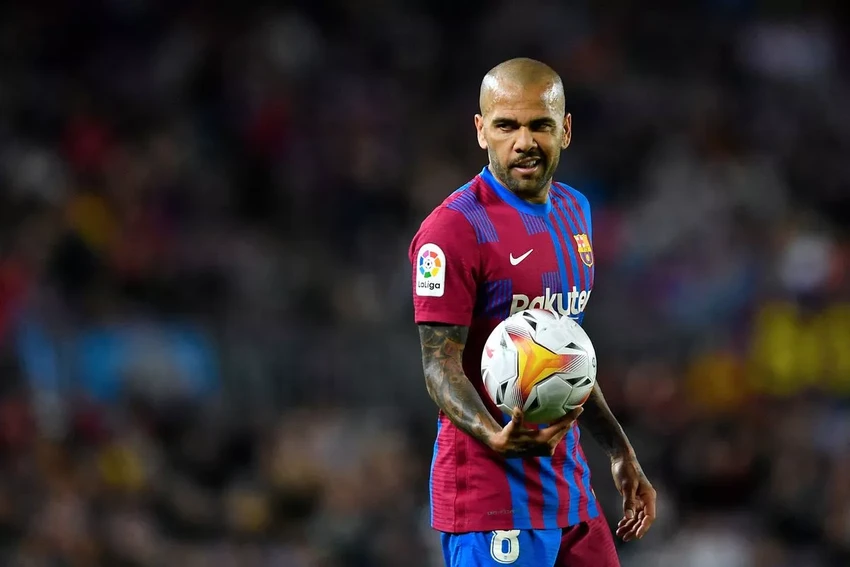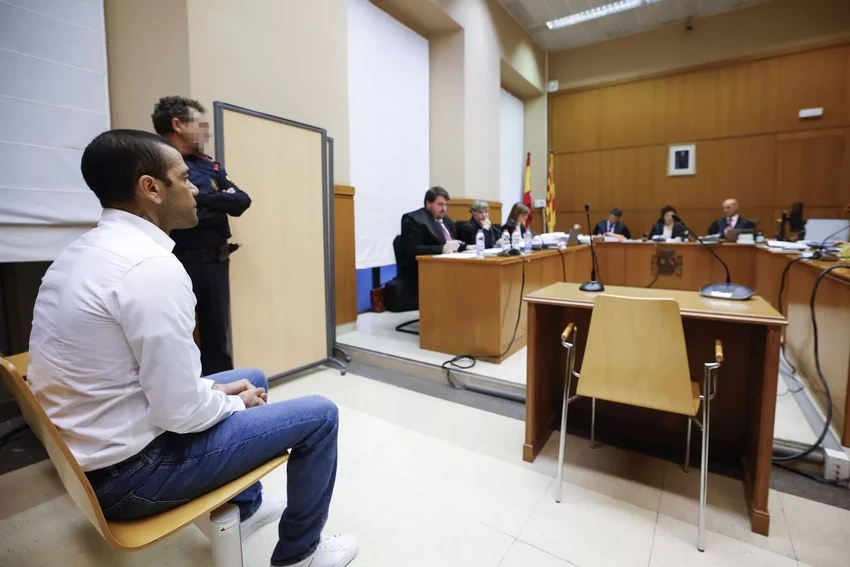Football legend Dani Alves, formerly of Barcelona, has been released from prison just weeks after being sentenced to four and a half years of incarceration.
The former Barcelona star and Brazilian national team player successfully appealed his sentence of four and a half years in prison. Subsequently, Dani Alves has surrendered his passport and paid one million euros to be released from prison for the first time in over a year.
Aged 40, Dani Alves emerged victorious in his appeal against the four and a half-year prison sentence, now to serve his sentence comfortably under house arrest instead of behind bars. The conditions for Alves’ release include an obligation to pay a bail amount of 855,076 pounds (equivalent to one million euros) and surrender his Spanish and Brazilian passports.
Judges in Barcelona on Wednesday agreed to allow Dani Alves to leave Brians Prison provided he meets certain conditions. The Brazilian international informed them during a closed-door session via video link on Tuesday morning, stating, “I will not flee; I believe in justice.”

Alves’ lawyer, Ines Guardiola, stated during the hearing that he was prepared to pay bail, surrender his Spanish and Brazilian passports as part of any conditional release arrangement for Dani Alves. Both a prosecutor and a lawyer representing the victim (the woman allegedly assaulted by Alves) argued that Alves should remain imprisoned. Alves was sentenced to four and a half years in prison on February 22 following a three-day trial.
The Supreme Court of Catalonia stated in a declaration, “Section 21 of the Provincial Court of Barcelona Audiencia has agreed by majority vote, with one dissenting vote, to grant conditional release to Daniel Alves da Silva, along with Alves paying a bail amount of one million euros. In the event that the payment process is completed and Alves’ temporary release is approved, his Spanish and Brazilian passports will be confiscated, and he will be prohibited from leaving Spain. Dani Alves will be required to sign at the court weekly and appear in court whenever ordered to do so.
Daniel Alves da Silva is also prohibited from being within 1,000 meters of the victim’s residence, workplace, or any other location frequented by the victim, and from contacting the victim by any means until a final verdict is reached thereafter. Appeals against his sentence have concluded.”

Judge Luis Belesta was one of the three individuals empowered to vote on whether Dani Alves should serve his sentence under house arrest or not. Belesta voted against Alves’ imprisonment. Explaining his decision, Luis Belesta stated, “Regarding the risk, this court believes that this risk has occurred three times (Alves intended to flee). The last of these instances was on November 23, 2023.”
Previously, Dani Alves had repeatedly attempted to request permission from the court to be under external supervision, but his requests were denied by the court due to concerns that Alves might flee. One of the main arguments prosecutors made against Alves’ bail request before his trial was that he might flee Spain to Brazil. This South American country does not extradite its citizens who have been convicted abroad.
Regarding Dani Alves’ four and a half-year prison sentence, some argue that it is too lenient, significantly lower than the nine-year sentence requested by prosecutors and the 12-year sentence desired by the victim.


